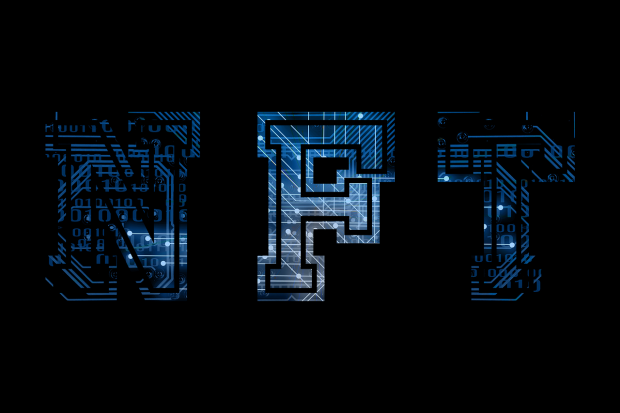Taylor Appelbaum Discusses The Copyright Implications and Issues with NFTs - A Lawyer’s Perspective


The world of digital assets is constantly evolving and changing. With new technologies come new opportunities, and with new opportunities come new challenges. One of the most recent developments in the digital asset space is non-fungible tokens, or NFTs. These tokens are unique and can represent a variety of different things. However, as with any new technology, many copyright implications and issues need to be addressed. In this blog post, Chicago IL Lawyer Taylor Appelbaum will take a closer look at these implications and issues and explore how they could impact the future of the digital asset space.
NFTs, or non-functional trademarks, are types of IP that businesses can use to protect their brand and identity. Unlike other forms of IP, such as patents and copyrights, NFTs do not necessarily have to be related to a specific product or service. Instead, visual elements like logos typically help set a business apart from its competitors. Because NFTs can play an essential role in strengthening brand recognition and building customer loyalty, companies will often go to great lengths to secure and protect them.
Taylor Appelbaum says one potential issue with NFTs is that they may raise copyright implications depending on the mark's design. For example, suppose a company attempts to register a logo similar to another company's existing trademarked effect. It may be considered copyright infringement and result in legal consequences for the infringing party.
It is vital for businesses thinking about adopting NFTs to consider all aspects of how these marks could potentially be used or recreated by others before registering them. Ultimately, proper protection of NFTs is essential for any successful business looking to stay competitive in today's crowded marketplace.
Copyright law in the United States is governed by the Federal Copyright Act of 1976. This act protects "original works of authorship" that are fixed in a tangible medium of expression. This includes literary works, musical compositions, paintings, and sculptures. For something to be protected under copyright law, it must meet a few basic requirements: it must be original, created by an author (or multiple authors), and fixed in a physical or digital form.
Taylor Appelbaum says NFTs typically take the form of digital images or files that can be stored on a blockchain. They would likely fall under "literary works" or "musical compositions" and be protected by copyright law. However, there are a few potential issues that could arise from this. First, it is unclear whether the current copyright law applies to NFTs stored on a blockchain. Second, even if the current copyright law does apply to NFTs, many gray areas could lead to legal disputes.
For example, it is not entirely clear who owns the copyright to an NFT once it has been sold or transferred to another party. This issue becomes even more complicated when you consider that NFTs can be sold or traded multiple times before they are finally redeemed for their underlying asset.
Fortunately, a few potential solutions could help mitigate the copyright issues associated with NFTs. One option is to use an open-source license for all NFTs. This would allow anyone to use, modify, or distribute the NFT without obtaining permission from the copyright holder.
Another solution is to create a centralized registry of all NFTs that includes information about who owns the copyright to each one. This would make it easier for businesses and individuals to determine whether an NFT is already copyrighted before they attempt to register it themselves. Finally, companies can also consider using alternative IP protection methods for their NFTs, such as trademarks or design patents.
NFTs may also have other implications beyond copyright law. For example, there could be tax implications depending on how the NFT is used or sold. NFTs could also have implications for data privacy and security if they store sensitive information on a blockchain. Finally, it is worth noting that the use of NFTs could potentially lead to more litigation due to the complexities associated with these digital assets.
Taylor Appelbaum says the current copyright implications and issues will likely shape the future of NFTs. If businesses and individuals are not careful about using or registering these digital assets, it could lead to many legal problems down the road. As such, it is vital to be aware of the potential implications of NFTs and take steps to mitigate these risks. With that said, the future of NFTs is still very much uncertain. It will likely depend on how the technology evolves and how businesses and individuals use it.
There are a few things that we can do to ensure that the future of NFTs is a positive one. First, we can educate ourselves about the potential implications of these digital assets. Second, we can take steps to mitigate the risks associated with NFTs. Finally, we can support businesses and individuals responsibly using this technology. By taking these steps, we can help ensure that the future of NFTs is a positive one.
NFTs have the potential to revolutionize the way we interact with digital assets. However, a few potential copyright implications and issues could arise from their use. It is essential to be aware of these implications and take steps to mitigate them. With that said, the future of NFTs is still very much uncertain. It will likely depend on how the technology evolves and how businesses and individuals use it. We can do our part to ensure that the future of NFTs is a positive one by educating ourselves about the risks associated with this technology and supporting those who are using it responsibly.
© 2023 Lawyer Herald All rights reserved. Do not reproduce without permission.
* This is a contributed article and this content does not necessarily represent the views of lawyerherald.com
Get the Most Popular Lawyerherald Stories in a Weekly Newsletter